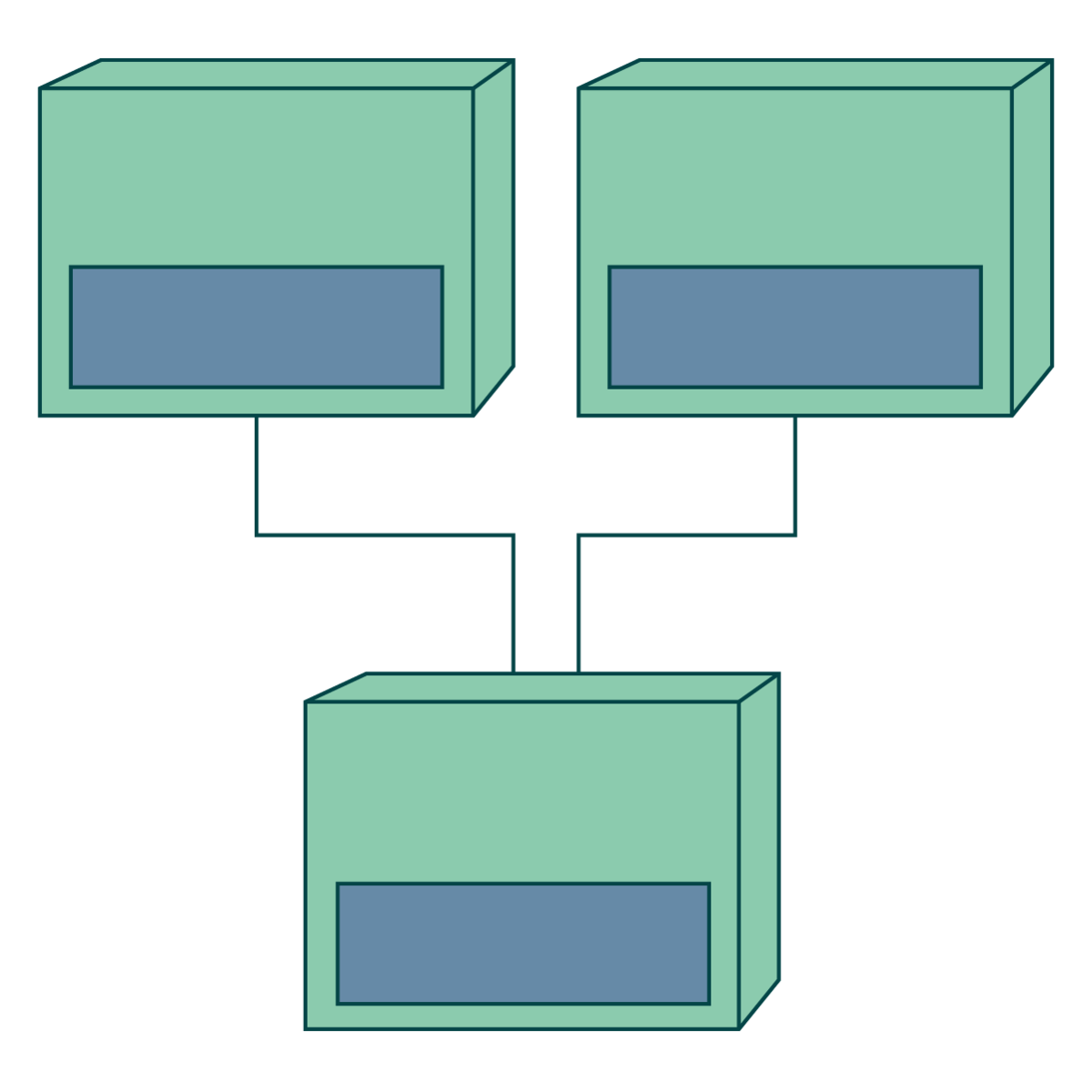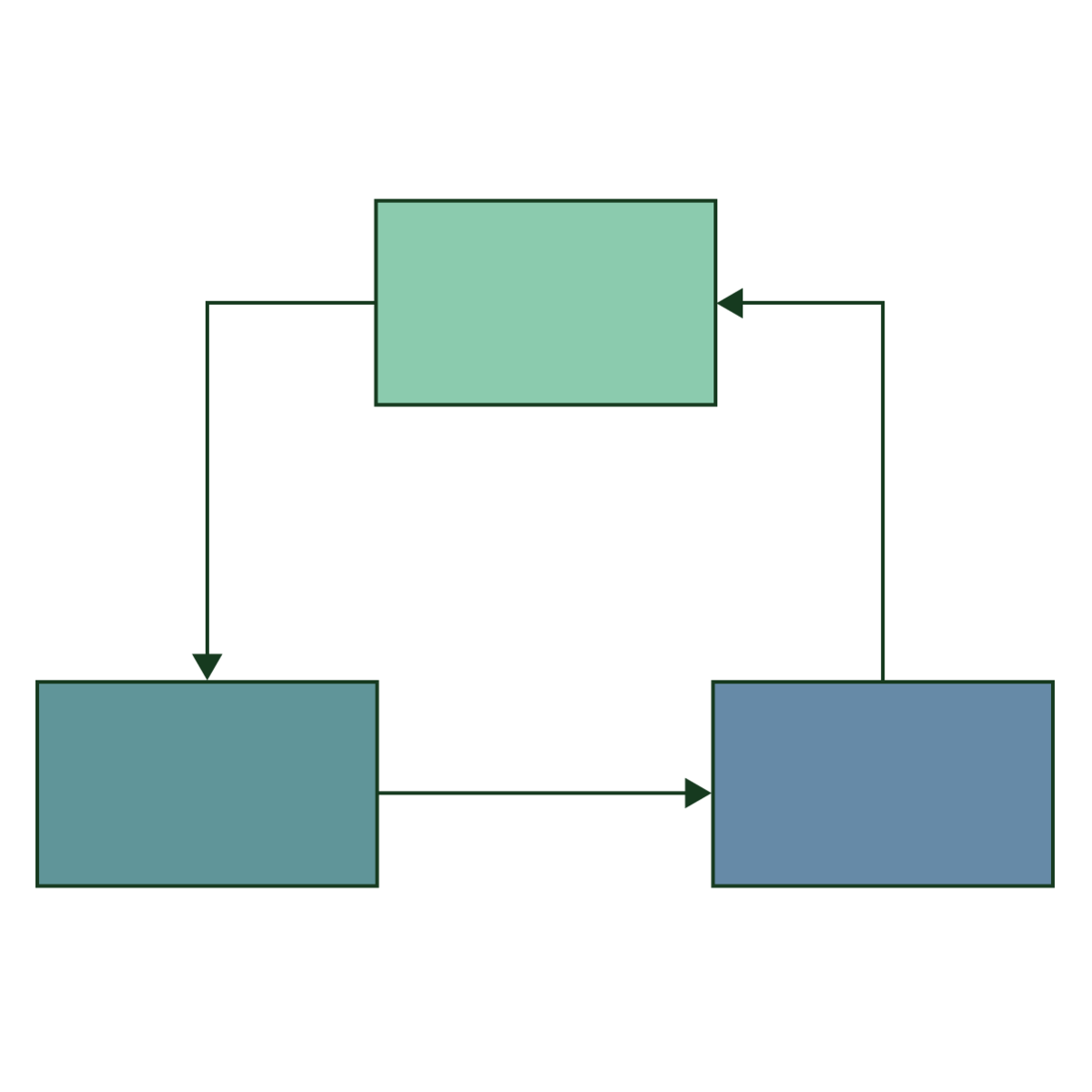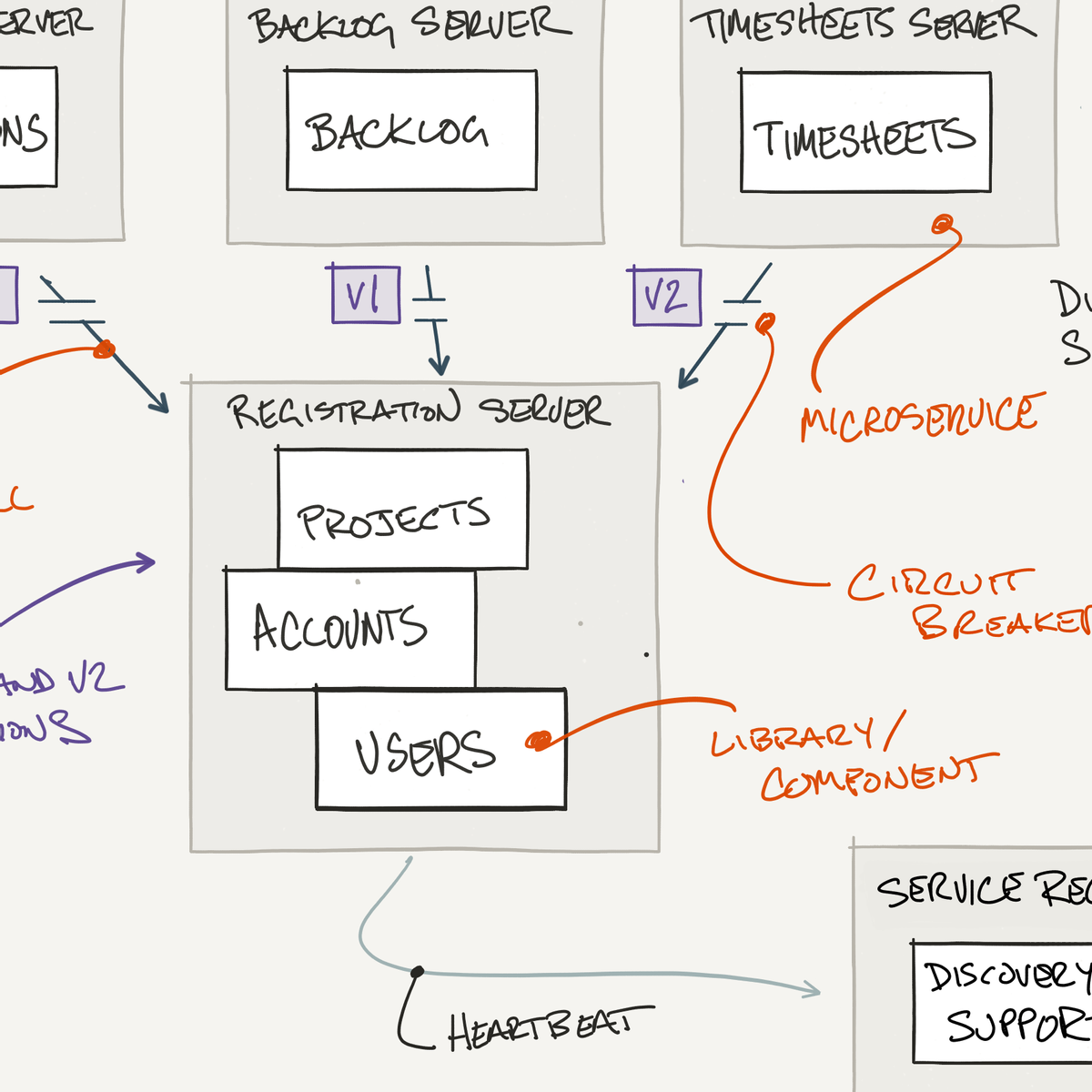Software Architect
Becoming a Software Architect: Designing the Digital Blueprint
A Software Architect is a pivotal figure in the technology landscape, responsible for designing the high-level structure of software systems. Think of them as the master planners for digital construction projects. They make crucial decisions about the technologies, patterns, and standards used, ensuring the final product is robust, scalable, and meets user needs. Their work forms the foundation upon which development teams build complex applications.
Working as a Software Architect involves blending deep technical expertise with strong strategic thinking and communication skills. It's a role where you get to solve complex puzzles, shape the technological direction of projects, and collaborate closely with diverse teams. The thrill comes from seeing intricate system designs come to life and successfully handle real-world demands, impacting potentially millions of users.
Introduction to Software Architecture
Defining Software Architecture
Software architecture refers to the fundamental structures of a software system and the discipline of creating such structures. It involves making high-level design choices and dictating technical standards, including software coding standards, tools, and platforms. It's about defining the components of a system, their relationships, and how they interact to fulfill specific requirements.
The role of architecture is critical because early design decisions have long-lasting impacts. A well-designed architecture ensures the system is scalable (can handle growth), maintainable (easy to update), reliable (works consistently), and secure. Poor architecture, conversely, can lead to systems that are difficult to change, prone to errors, and unable to meet performance goals.
Essentially, the architect creates the blueprint that guides the entire development process. They consider various factors like business requirements, technical constraints, performance goals, and long-term maintainability to create a coherent and effective system design. This blueprint allows different teams to work cohesively towards a common goal.
Core Objectives of a Software Architect
A software architect aims to design systems that meet both functional requirements (what the system does) and non-functional requirements (how the system performs). Non-functional requirements, often called quality attributes, include aspects like performance, security, scalability, reliability, and maintainability. Balancing these often competing attributes is a key challenge.
Another primary objective is managing complexity. Modern software systems can be incredibly intricate. The architect breaks down this complexity into manageable components and defines clear interfaces between them. This modular approach makes the system easier to understand, develop, test, and maintain over time.
Finally, architects ensure the system aligns with the organization's strategic goals and technical vision. They evaluate new technologies, anticipate future needs, and make decisions that support long-term sustainability and evolution of the software portfolio. They act as technical leaders, guiding teams towards effective solutions.
Historical Evolution of the Role
The concept of software architecture emerged as software systems grew in size and complexity. In the early days of computing, software development was less formalized. However, as projects became larger and involved more developers, the need for deliberate design and planning became apparent, leading to the rise of the software architect role.
Initially, the focus was primarily on structuring code within a single application. With the advent of distributed systems, networking, and the internet, the scope expanded dramatically. Architects began designing systems composed of multiple interacting services, often running on different machines or even across different organizations.
The rise of paradigms like object-oriented programming, service-oriented architecture (SOA), microservices, and cloud computing has continuously reshaped the role. Today's architects must navigate a vast landscape of technologies, patterns, and deployment models, requiring continuous learning and adaptation.
Key Industries Employing Software Architects
Software architects are in demand across virtually every industry that relies on technology. The finance sector employs architects to design secure and high-performance trading platforms, banking systems, and risk management applications. Healthcare relies on architects for electronic health records (EHR) systems, medical imaging software, and telehealth platforms, ensuring compliance with strict privacy regulations.
Technology companies, from startups to giants like Google and Microsoft, are major employers, needing architects to design everything from operating systems and cloud platforms to consumer applications and enterprise software. E-commerce businesses require architects to build scalable online stores, recommendation engines, and logistics systems capable of handling massive traffic.
Other significant sectors include telecommunications (network infrastructure, mobile services), automotive (connected car systems, autonomous driving software), government (large-scale public sector systems), and entertainment (streaming services, gaming platforms). The ubiquity of software means architects play a vital role across the economic spectrum.
Key Responsibilities of a Software Architect
Designing Scalable System Architectures
One of the primary responsibilities is designing architectures that can grow and adapt over time. This involves anticipating future load increases, data volume growth, and feature additions. Architects select appropriate patterns and technologies to ensure the system can scale horizontally (adding more machines) or vertically (increasing resources on existing machines).
They make decisions about system decomposition, choosing between monolithic, microservices, or other architectural styles based on scalability requirements and team structure. They also design data storage solutions that can handle increasing amounts of data efficiently and reliably.
Performance is intrinsically linked to scalability. Architects define performance goals and design the system to meet them, often involving choices about caching strategies, database optimization, asynchronous processing, and efficient communication protocols between system components.
These courses provide insights into designing large-scale systems and understanding different architectural patterns.
Understanding patterns for building scalable systems is crucial. These books offer valuable insights into established solutions.
Collaborating with Cross-Functional Teams
Software architects rarely work in isolation. They collaborate extensively with various stakeholders, including software developers, product managers, project managers, operations teams (DevOps), and business leaders. Effective communication and collaboration are essential to ensure the architecture aligns with business goals and technical realities.
Architects work closely with development teams to explain the architecture, provide guidance during implementation, and address technical challenges. They help translate business requirements, gathered by product managers, into technical designs. They also collaborate with operations teams to ensure the system is deployable, monitorable, and manageable in production.
This collaborative role requires strong interpersonal skills, the ability to explain complex technical concepts to different audiences, and the capacity to mediate differing opinions and build consensus around architectural decisions.
Technical Decision-Making and Risk Assessment
Architects are responsible for making critical technical decisions that shape the system. This includes selecting programming languages, frameworks, databases, messaging systems, and cloud services. These decisions involve trade-offs – for example, choosing a familiar technology versus a newer one that offers potential advantages but also higher risks.
Evaluating and selecting technologies requires deep technical knowledge and an understanding of the long-term implications of each choice. Architects must consider factors like performance characteristics, scalability limits, vendor lock-in, community support, licensing costs, and the team's existing skill set.
A significant part of this process is risk assessment. Architects identify potential technical risks, such as performance bottlenecks, security vulnerabilities, or integration challenges. They then devise mitigation strategies or select alternative approaches to minimize these risks, ensuring the project's success and the system's stability.
These courses explore decision-making in the context of specific technologies and architectural styles.
Documentation and Governance Standards
Clear and comprehensive documentation is vital for communicating the architecture to all stakeholders. Architects create various diagrams (like component diagrams, sequence diagrams, deployment diagrams using tools like UML), decision logs, and technical specifications to explain the system's structure and design rationale.
Beyond documenting the initial design, architects often play a role in establishing and enforcing technical standards and best practices across development teams. This governance ensures consistency, quality, and maintainability throughout the software lifecycle.
Governance might involve setting coding standards, defining review processes, mandating the use of specific tools or libraries, and ensuring compliance with security and regulatory requirements. The goal is to maintain architectural integrity as the system evolves and new features are added.
Essential Skills for Software Architects
Technical Proficiency
A strong foundation in software development is non-negotiable. Architects must possess deep technical expertise in areas relevant to their domain. This typically includes proficiency in multiple programming languages (e.g., Java, Python, C#, Go, JavaScript), understanding various frameworks, and familiarity with different database technologies (SQL, NoSQL).
They need a solid grasp of computer science fundamentals, including data structures, algorithms, operating systems, and networking. Understanding how software interacts with underlying hardware and infrastructure is crucial for designing efficient and performant systems.
Continuous learning is essential, as the technology landscape evolves rapidly. Architects must stay updated on new languages, frameworks, tools, and architectural patterns to make informed decisions and leverage the best available solutions.
These books cover fundamental patterns and principles essential for technical proficiency.
Systems Thinking and Abstraction
Systems thinking is the ability to see the bigger picture – how different components of a system interact and how the system fits within its broader environment. Architects need to understand the interdependencies and potential ripple effects of design decisions across the entire system.
Abstraction is key to managing complexity. Architects must be adept at simplifying complex problems, identifying core concepts, and defining clear interfaces and boundaries between components. This allows teams to focus on specific parts of the system without needing to understand every detail of the whole.
This involves modeling the system at different levels of detail, from high-level conceptual views down to more specific component designs. The ability to switch between these levels of abstraction is crucial for effective architectural work.
Communication and Stakeholder Management
As mentioned earlier, architects interact with a wide range of people. Strong communication skills – both written and verbal – are paramount. They need to clearly articulate complex technical ideas to developers, product managers, executives, and sometimes even non-technical clients.
This includes presenting architectural designs, justifying technical decisions, writing clear documentation, and facilitating technical discussions. Active listening is equally important to understand requirements, gather feedback, and address concerns from different stakeholders.
Stakeholder management involves building relationships, understanding different perspectives, negotiating trade-offs, and influencing decision-making. Architects often act as technical leaders and mentors, guiding teams and fostering a positive and collaborative technical culture.
Knowledge of Design Patterns and Cloud Infrastructure
Familiarity with established design patterns is essential. These are reusable solutions to common software design problems. Knowing patterns like Singleton, Factory, Observer, Strategy, etc., allows architects to leverage proven solutions instead of reinventing the wheel, leading to more robust and maintainable designs.
With the prevalence of cloud computing, expertise in cloud infrastructure (AWS, Azure, Google Cloud) is increasingly vital. Architects need to understand cloud service models (IaaS, PaaS, SaaS), design for cloud-native environments, and utilize services like managed databases, serverless functions, container orchestration (Kubernetes), and messaging queues effectively.
Understanding the trade-offs associated with different cloud services and deployment strategies (e.g., cost, performance, availability, security) is critical for designing cost-effective and resilient cloud-based systems.
Formal Education Pathways
Relevant Undergraduate Degrees
A bachelor's degree in Computer Science, Software Engineering, or a closely related field is the most common starting point for a career leading to software architecture. These programs provide essential theoretical foundations in algorithms, data structures, operating systems, programming languages, and software design principles.
Computer Science programs often offer a broad theoretical base, while Software Engineering programs may focus more specifically on the practical aspects of designing, developing, testing, and maintaining large software systems. Both provide the necessary groundwork.
While a degree is typical, it's important to remember that extensive practical experience often weighs heavily. Many successful architects started as software developers and built their skills and knowledge through years of hands-on work, sometimes without a traditional CS degree.
Graduate Programs
For those seeking deeper specialization or a more research-oriented path, a master's or Ph.D. degree can be beneficial. Master's programs in Software Engineering or Computer Science often offer advanced courses in software architecture, distributed systems, system design, and specialized areas like cloud computing or cybersecurity.
Some universities offer specific programs or concentrations focusing on Enterprise Architecture, which deals with aligning an organization's IT strategy and systems with its business goals. These programs delve into frameworks like TOGAF and broader organizational considerations.
While not strictly necessary for most architect roles, a graduate degree can provide a competitive edge, deepen theoretical understanding, and open doors to more specialized or research-focused positions, particularly in large enterprises or research institutions.
PhD Research Areas
A Ph.D. in Computer Science or a related field allows for deep research into specific areas relevant to software architecture. Common research areas include distributed systems, high-performance computing, software verification and validation, formal methods, programming language design, cybersecurity, and artificial intelligence/machine learning applied to software systems.
Research in distributed systems might focus on novel consensus algorithms, fault tolerance techniques, or scalable data management. AI-driven architecture research explores how machine learning can automate design decisions, optimize system performance, or detect architectural anomalies.
While a Ph.D. is typically geared towards academic or industrial research positions, the rigorous training in problem-solving, critical thinking, and deep technical expertise gained can be highly valuable for architects tackling extremely complex or novel challenges.
Certifications
Industry certifications can supplement formal education and practical experience, demonstrating specific knowledge and skills. Several certifications are popular among software architects, particularly in cloud computing and enterprise architecture.
Cloud provider certifications, such as AWS Certified Solutions Architect (Associate and Professional), Microsoft Certified: Azure Solutions Architect Expert, and Google Cloud Certified - Professional Cloud Architect, validate expertise in designing and deploying applications on specific cloud platforms. These are highly sought after due to the prevalence of cloud technologies.
Other relevant certifications include TOGAF (The Open Group Architecture Framework) for enterprise architects and certifications related to specific technologies or methodologies like Kubernetes (CKA/CKAD) or Agile/Scrum (CSM, CSPO, though less directly architectural).
Online Learning and Self-Directed Study
Structured Learning with Online Courses
Online courses offer a flexible and accessible way to acquire the knowledge needed for software architecture. Platforms like Coursera, edX, Udacity, and Udemy host numerous courses covering fundamental computer science, programming languages, design patterns, cloud computing, system design, and specific architectural styles like microservices.
These courses range from introductory overviews to deep dives into advanced topics, often taught by university professors or industry experts. Many offer hands-on labs and projects, allowing learners to apply concepts practically. Online learning is ideal for supplementing formal education, staying current with new technologies, or facilitating a career pivot into tech.
OpenCourser aggregates thousands of these courses, making it easier to find relevant learning materials. You can search for specific topics like "microservices architecture" or browse categories like Cloud Computing to discover structured learning paths.
These courses provide comprehensive introductions or focused training on becoming a software or solution architect.
Open-Source Project Contributions
Contributing to open-source projects provides invaluable real-world experience. It allows you to work on large, complex codebases, collaborate with experienced developers globally, and learn established development practices and architectural patterns used in actual software.
You can start by fixing bugs, improving documentation, or adding small features to projects that interest you. As you gain familiarity, you might contribute to more significant architectural discussions or refactoring efforts. This practical experience is highly valued by employers.
Platforms like GitHub host millions of open-source projects. Find a project using technologies you want to learn or in a domain that excites you. Engaging with the community through forums, mailing lists, or issue trackers is also part of the learning process.
Portfolio Development Through Projects
Building personal projects or designing hypothetical systems is an excellent way to practice architectural skills and create a portfolio to showcase your abilities. Choose a problem that interests you and design a solution, documenting your architectural decisions and trade-offs.
Consider designing a system familiar to you but at scale, like a simplified social media platform, an e-commerce site, or a ride-sharing service. Focus on defining requirements (both functional and non-functional), selecting technologies, designing components and their interactions, and considering aspects like scalability, security, and deployment.
Document your design process thoroughly, perhaps in a blog post or a GitHub repository. This demonstrates your ability to think like an architect, even if you haven't held the formal title yet. System design interview preparation resources often provide good practice scenarios.
Balancing Theory with Hands-On Labs
Effective learning requires balancing theoretical knowledge with practical application. Reading books and watching lectures on architectural concepts is important, but implementing those concepts solidifies understanding.
Seek out courses and resources that include hands-on labs, coding exercises, or guided projects. Experiment with different technologies and patterns yourself. Set up a small microservices application, configure a cloud deployment, or implement a specific design pattern to see how it works in practice.
This hands-on experience helps bridge the gap between abstract concepts and real-world implementation challenges. It builds confidence and provides concrete examples to discuss in interviews or technical discussions. OpenCourser's Learner's Guide offers tips on structuring self-study and making the most of online resources.
Career Progression and Promotion Trajectories
Typical Pre-Architect Roles
Most software architects begin their careers as software developers or engineers. They gain experience building software, learning different technologies, and understanding the development lifecycle. Strong technical skills and problem-solving abilities are foundational.
Progression often involves moving into senior developer or technical lead roles. In these positions, individuals take on more responsibility for technical design within a team, mentor junior engineers, and contribute to architectural discussions for specific components or features.
Experience in roles like DevOps Engineer or Site Reliability Engineer (SRE) can also provide valuable perspectives on system operations, scalability, and reliability, which are crucial for architecture. A deep understanding of how systems behave in production is a significant asset.
Specialization Paths
As architects gain experience, they often specialize in particular areas. Common specializations include:
- Cloud Architecture: Focusing on designing and deploying systems on specific cloud platforms (AWS, Azure, GCP).
- Security Architecture: Specializing in designing secure systems, threat modeling, and implementing security controls.
- Data Architecture: Focusing on designing data storage, processing pipelines, data warehousing, and data governance strategies.
- Infrastructure Architecture: Concentrating on the underlying hardware, networks, and infrastructure components supporting software systems.
- Application Architecture: Specializing in the design of specific types of applications (e.g., web, mobile, enterprise).
- Solutions Architecture: Often a client-facing role, designing solutions to specific business problems, potentially spanning multiple systems.
These specializations allow architects to develop deep expertise in high-demand areas and tailor their career paths to their interests.
Transition to Executive Roles
Experienced software architects with strong leadership skills may transition into executive technology roles. A common path is moving to Principal Architect, Distinguished Engineer, or Fellow positions, which represent deep technical expertise and influence within an organization.
Other potential executive roles include Director of Engineering, VP of Engineering, or Chief Technology Officer (CTO). These roles involve broader responsibilities, such as managing multiple engineering teams, setting the overall technology strategy for the organization, managing budgets, and aligning technology initiatives with business goals.
This transition requires complementing technical depth with strong leadership, strategic planning, financial acumen, and business communication skills. Architects aspiring to these roles often benefit from management training or experience leading large teams or initiatives.
Freelance/Consulting Opportunities
The expertise of seasoned software architects is highly valuable, creating opportunities for freelance or consulting work. Many organizations need specialized architectural guidance for specific projects or challenges but may not require a full-time architect.
Consultants might help companies migrate to the cloud, adopt microservices, design new systems, perform architectural reviews, or provide strategic technology advice. Freelancing offers flexibility and the chance to work on diverse projects across different industries.
Success in consulting requires not only deep technical expertise but also strong business development, client management, and communication skills. Building a professional network and reputation is crucial for finding consulting engagements.
Software Architect in Emerging Tech Landscapes
Impact of AI/ML on Architectural Design
Artificial Intelligence (AI) and Machine Learning (ML) are increasingly influencing software architecture. Architects need to understand how to design systems that incorporate AI/ML models, handle large datasets for training and inference, and manage the lifecycle of these models.
This involves designing data pipelines, selecting appropriate ML frameworks and infrastructure (e.g., specialized hardware like GPUs/TPUs, ML platforms), ensuring model monitoring and retraining capabilities, and addressing ethical considerations related to AI.
Furthermore, AI itself is being applied to architectural tasks, such as automating design choices, predicting performance bottlenecks, or optimizing resource allocation. Architects need to be aware of these emerging AI-for-architecture tools and techniques.
Edge Computing and IoT Architecture Challenges
The rise of the Internet of Things (IoT) and edge computing presents unique architectural challenges. Architects designing IoT systems must handle potentially massive numbers of connected devices, manage intermittent connectivity, process data closer to the source (at the edge), and ensure security across a distributed network.
Edge computing architectures involve distributing computation, data storage, and services away from centralized data centers towards the logical extremes of a network. This requires careful design to manage device heterogeneity, resource constraints on edge devices, data synchronization, and security vulnerabilities inherent in distributed systems.
Designing scalable, resilient, and secure architectures for IoT and edge applications requires specialized knowledge of relevant protocols (like MQTT), edge platforms, and distributed system patterns.
Sustainability Considerations in System Design
Environmental sustainability is becoming an increasingly important consideration in software architecture. Designing energy-efficient systems, optimizing resource utilization in data centers, and choosing greener cloud providers or infrastructure options are part of "Green IT" or sustainable software engineering.
Architects can influence sustainability by making conscious choices about algorithms (less computationally intensive), data transfer (minimizing unnecessary movement), hardware utilization (maximizing efficiency, promoting circular economy principles), and cloud region selection (choosing regions powered by renewable energy).
While still an evolving field, architects are expected to become more aware of the environmental impact of their designs and incorporate sustainability principles into their decision-making process, balancing performance and cost with ecological responsibility.
Global Demand Shifts Across Industries
The demand for software architects continues to grow globally across various industries, driven by ongoing digital transformation initiatives. Cloud adoption remains a major driver, increasing the need for architects skilled in cloud-native design and migration strategies.
Emerging technologies like AI, IoT, and blockchain are creating new demands for specialized architectural expertise. Industries undergoing significant technological disruption, such as automotive (autonomous vehicles), healthcare (digital health), and finance (FinTech), show particularly strong demand.
Geographically, demand is strong in established tech hubs but also growing rapidly in emerging markets as more companies invest in digital capabilities. The trend towards remote work has also broadened opportunities, allowing architects to work for companies located anywhere in the world. According to the U.S. Bureau of Labor Statistics, employment in computer and information technology occupations is projected to grow much faster than the average for all occupations.
Ethical and Organizational Challenges
Technical Debt Management
Technical debt refers to the implied cost of rework caused by choosing an easy (limited) solution now instead of using a better approach that would take longer. Architects play a crucial role in managing technical debt by making conscious decisions about shortcuts and advocating for time to refactor and improve the codebase.
Unmanaged technical debt can cripple a system over time, making it brittle, hard to change, and expensive to maintain. Architects must balance the pressure for rapid feature delivery with the need for long-term system health. This involves identifying areas of high debt, prioritizing refactoring efforts, and communicating the risks of accumulating debt to business stakeholders.
Strategies include establishing clear coding standards, implementing automated testing, performing regular code reviews, and allocating specific time in development cycles for refactoring and architectural improvements.
Balancing Innovation with Legacy System Constraints
Many organizations rely on older, legacy systems that are critical to their operations but difficult to change. Architects often face the challenge of integrating new technologies and innovative solutions with these existing systems without causing disruption.
This requires careful planning, often involving strategies like building abstraction layers around legacy systems, using integration patterns like strangler fig to gradually replace old functionality, or adopting hybrid architectures that allow new and old components to coexist.
Architects must understand the constraints and risks associated with legacy systems while identifying opportunities for modernization. This involves navigating technical limitations, organizational resistance to change, and the potential costs and complexities of migration projects.
Data Privacy and Security Compliance
Ensuring data privacy and complying with security regulations (like GDPR, CCPA, HIPAA) is a critical architectural concern. Architects must design systems with security and privacy built-in from the start ("security by design," "privacy by design").
This involves implementing robust authentication and authorization mechanisms, encrypting sensitive data at rest and in transit, designing secure APIs, protecting against common vulnerabilities (e.g., SQL injection, cross-site scripting), and ensuring systems facilitate compliance requirements like data access requests or deletion.
Architects need to stay informed about evolving security threats and regulatory landscapes. They work closely with security teams to conduct threat modeling, implement security best practices, and ensure the architecture supports ongoing security monitoring and incident response.
Cross-Cultural Team Coordination in Global Projects
In today's globalized world, architects often work with development teams distributed across different countries and cultures. This introduces challenges related to time zones, language barriers, and varying communication styles or work practices.
Effective coordination requires clear documentation, well-defined interfaces, standardized processes, and tools that facilitate asynchronous communication and collaboration. Architects need cultural sensitivity and adaptability to build rapport and ensure effective teamwork across diverse groups.
Establishing a shared understanding of architectural goals and technical standards is crucial. Regular communication, potentially using video conferencing and collaborative platforms, helps bridge geographical distances and foster a cohesive team environment despite cultural differences.
Frequently Asked Questions (Career Focus)
What are the typical salary expectations?
Salary expectations for Software Architects vary significantly based on experience level, geographic location, industry, company size, and specific skills. Generally, it is a high-paying role reflecting the required expertise and responsibility. According to data from sites like Glassdoor and Payscale, salaries in the US often range from $130,000 to well over $200,000 annually, with senior or specialized architects commanding even higher figures. Reputable sources like Robert Half's Salary Guide often provide up-to-date benchmarks for technology roles.
Factors influencing salary include years of experience, proficiency in high-demand technologies (like cloud platforms or AI/ML), relevant certifications, and the cost of living in the specific region. Large tech companies and financial institutions often offer the highest compensation packages.
It's important to research salary ranges specific to your location and industry using reliable sources. Remember that total compensation often includes bonuses, stock options, and other benefits beyond the base salary.
How do I transition from a Developer to an Architect role?
The transition typically involves gaining broad technical experience, developing systems-level thinking, and honing leadership and communication skills. Start by seeking opportunities to work on larger, more complex projects and taking ownership of design decisions for specific components or features within your team.
Actively learn about architectural patterns, quality attributes, and different technologies beyond your immediate project needs. Engage in architectural discussions, study system designs (both successful and unsuccessful), and practice designing solutions for hypothetical problems. Seek mentorship from experienced architects within your organization or professional network.
Develop your communication skills by presenting technical ideas, writing design documents, and collaborating effectively with different stakeholders. Volunteering for cross-team initiatives or contributing to open-source projects can also broaden your perspective and experience. Be patient; the transition often takes several years of dedicated effort and learning.
For those considering this path, remember that it's a significant step requiring dedication. Embrace the learning process, seek out challenges, and focus on building both technical depth and breadth, alongside crucial soft skills. Online learning platforms like OpenCourser provide resources to systematically build the necessary knowledge base.
Which industry sectors show the highest demand growth?
Demand for software architects is strong across many sectors, but growth is particularly high in areas heavily reliant on digital transformation and emerging technologies. Cloud computing services, cybersecurity firms, FinTech, HealthTech, e-commerce, and companies leveraging AI/ML are experiencing rapid growth and require skilled architects.
Industries undergoing major technological shifts, like automotive (with electric and autonomous vehicles) and renewable energy, also show increasing demand. The constant need for scalable, secure, and innovative software solutions ensures architects remain critical across the board. Research from firms like Gartner or Forrester often highlights key technology trends and associated talent demands.
Essentially, any industry investing heavily in modernizing its technology infrastructure or building complex digital products will likely have a growing need for software architects.
Is remote work common for Software Architects?
Yes, remote work has become increasingly common for software architects, mirroring trends across the broader tech industry. The nature of the role, which involves design, documentation, and communication, can often be performed effectively from a remote location, provided the right collaboration tools and practices are in place.
Many companies, especially in the tech sector, now offer fully remote or hybrid work arrangements for architect positions. This has expanded the talent pool and provided architects with greater flexibility in choosing where they live and work.
However, effective remote architecture requires excellent communication discipline, proactive stakeholder engagement, and proficiency with virtual collaboration tools (like video conferencing, shared whiteboards, and documentation platforms). Some organizations may still prefer or require periodic in-person collaboration, especially for initial design sessions or critical meetings.
Is there age or experience bias in hiring?
The software architect role inherently values experience. Deep technical knowledge, understanding of trade-offs, and familiarity with various system challenges typically come from years spent developing software and observing different architectural approaches. Therefore, extensive experience is often seen as a significant asset, potentially mitigating age bias compared to some other tech roles.
However, the tech industry is fast-paced, and bias can still exist. Some hiring managers might incorrectly assume older candidates are less familiar with newer technologies. To counter this, architects must demonstrate continuous learning and stay current with modern tools, platforms (especially cloud), and methodologies.
Highlighting recent projects, certifications in current technologies (like cloud or Kubernetes), contributions to modern open-source projects, and showcasing adaptability can help overcome potential biases. Ultimately, demonstrable expertise and strong communication skills are the most critical factors.
How do low-code/no-code platforms impact the career?
Low-code/no-code (LCNC) platforms allow users to build applications with minimal traditional coding. While these platforms are empowering citizen developers and accelerating development for certain types of applications (e.g., simple internal tools, workflows), they are unlikely to eliminate the need for software architects.
Instead, LCNC platforms introduce new architectural considerations. Architects may need to design strategies for integrating LCNC applications with existing enterprise systems, establish governance policies for their use, manage data flows, and ensure security and compliance within these environments.
Complex, large-scale, high-performance, or highly customized systems will still require traditional software development and sophisticated architectural design. LCNC platforms may handle simpler tasks, freeing up architects and developers to focus on more challenging problems where their deep technical expertise is indispensable. The architect's role may evolve to include overseeing and integrating solutions built with various tools, including LCNC.
Helpful Resources
Navigating the path to becoming a software architect involves continuous learning and leveraging available resources. Here are some helpful starting points:
- Online Course Catalogs: Use OpenCourser to find and compare courses on software architecture, system design, cloud computing, and related technologies.
- Professional Communities: Engage with communities on platforms like Stack Overflow, Reddit (e.g., r/softwarearchitecture), or specialized forums.
- Industry Publications: Follow reputable tech news sites and blogs (e.g., InfoQ, The Register, Martin Fowler's blog) to stay updated on trends and best practices.
- Books: Explore seminal texts on software architecture, design patterns, and system design mentioned throughout this article.
- OpenCourser Learner's Guide: Visit the Learner's Guide for tips on self-directed learning, using online courses effectively, and career development.
Becoming a Software Architect is a challenging yet rewarding journey that requires a blend of deep technical skills, strategic thinking, and effective communication. It involves continuous learning and adaptation in a constantly evolving technological landscape. Whether you are starting your career, considering a pivot, or looking to advance, focusing on building a strong foundation, gaining diverse experience, and developing leadership qualities will pave the way towards this influential role.









































